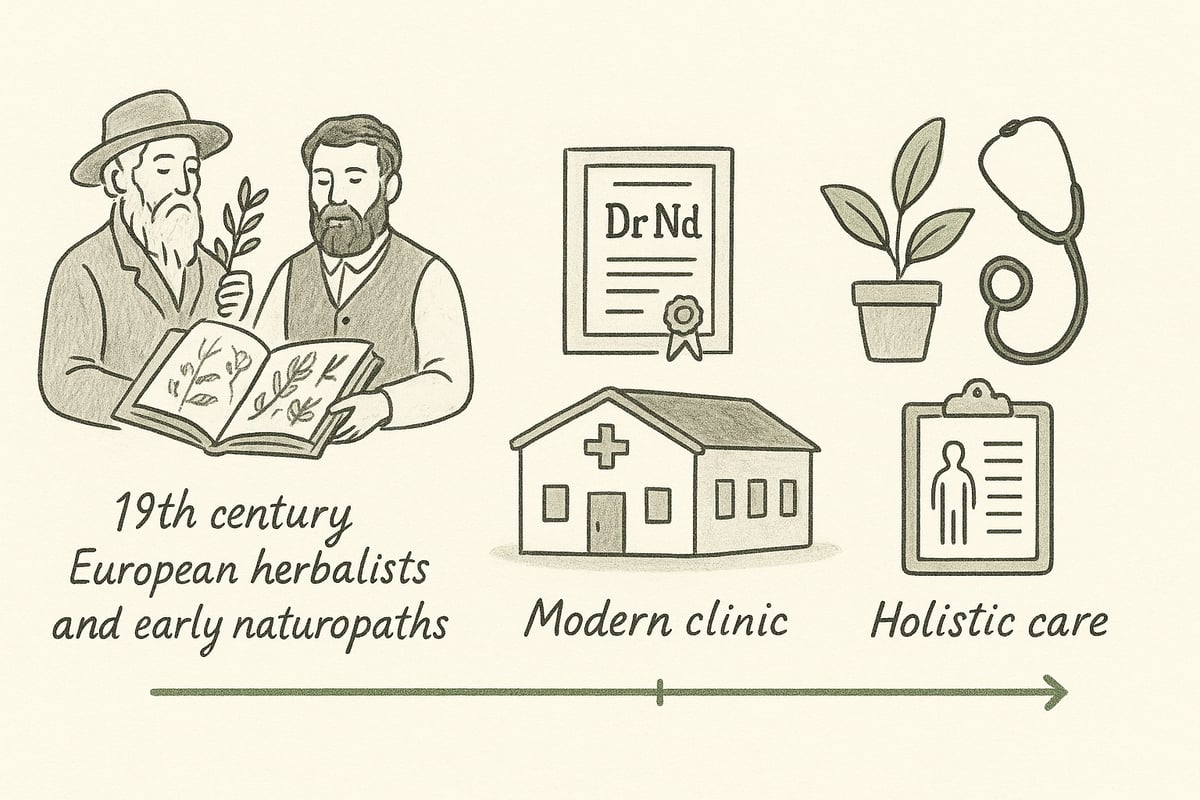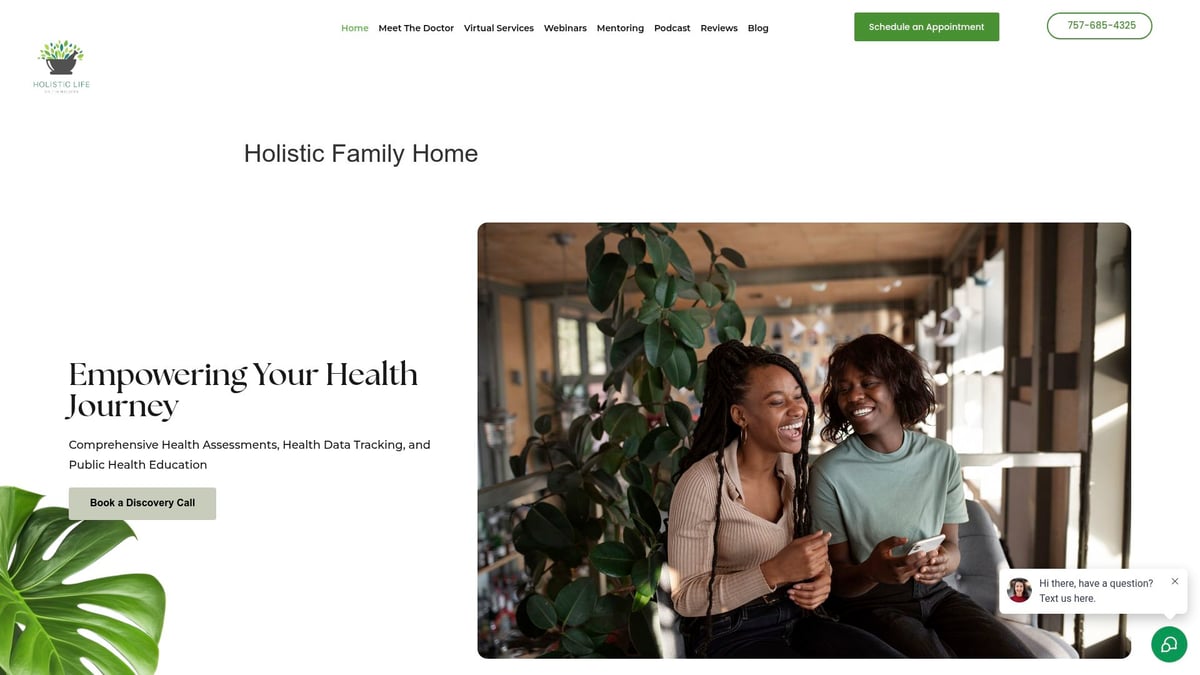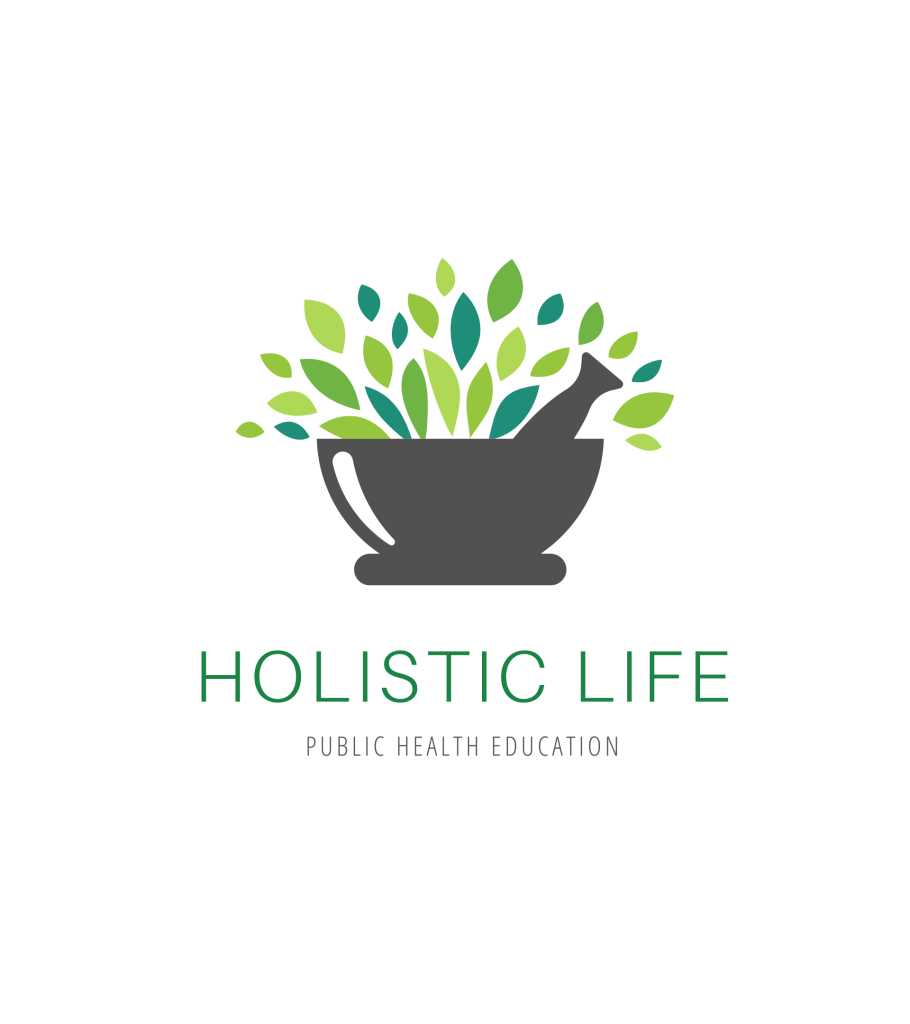Curious about how dr nd is changing the landscape of healthcare in 2025? As more people seek integrative solutions, understanding this role could be essential for your health journey.
This comprehensive guide will clarify what a dr nd is, explain their training, and highlight their unique approach to holistic care. You will learn how these practitioners differ from MDs and discover practical steps for choosing the right provider.
If you want to embrace cutting-edge, whole-person healthcare, keep reading to find out how a dr nd can support your wellness goals.
What Does “Dr Nd” Mean? Origins and Definitions
Understanding the meaning and background of “dr nd” is essential for anyone considering holistic healthcare in 2025. This section explores what the credential represents, its historical context, and the core beliefs that guide naturopathic doctors today.

The “Nd” Credential: Naturopathic Doctor Explained
The “dr nd” credential stands for Doctor of Naturopathic Medicine, a title held by healthcare professionals trained in both natural therapies and conventional medical sciences. This designation is protected by law in many regions, ensuring that only those who complete accredited programs and pass rigorous exams may call themselves a naturopathic doctor.
Naturopathy originated in 19th-century Europe, blending herbal medicine, hydrotherapy, and lifestyle counseling. Over time, dr nd practitioners integrated modern science, evolving into a distinct healthcare profession recognized in North America, Australia, and parts of Europe.
Today, there are over 8,000 licensed NDs practicing in North America alone. Licensing requirements are strict and vary by country, but they typically include graduation from an accredited naturopathic medical school, passing board exams, and ongoing education. In the United States and Canada, title protection is enforced by regulatory bodies like the Council on Naturopathic Medical Education (CNME), the American Association of Naturopathic Physicians (AANP), and the Canadian Association of Naturopathic Doctors (CAND).
A common misconception is that “dr nd” is interchangeable with “MD” (Medical Doctor), but the training and approach differ significantly. Even the capitalization matters: “ND” is the formal credential, while “dr nd” may be used informally. For a detailed look at licensing and legal distinctions, see the Naturopathic Doctor Licensing and Scope of Practice resource.
Standardized definitions and regulatory oversight help build public trust in the dr nd profession. Patients can feel confident knowing their provider meets national and international standards.
Core Principles of Naturopathic Medicine
The philosophy behind dr nd practice is rooted in six fundamental principles that guide every clinical decision:
- First, Do No Harm: Select safe, low-risk therapies.
- The Healing Power of Nature: Support the body’s innate ability to heal.
- Identify and Treat the Cause: Address root causes, not just symptoms.
- Doctor as Teacher: Educate patients for long-term wellness.
- Treat the Whole Person: Consider physical, mental, social, and environmental factors.
- Prevention: Focus on disease prevention and health promotion.
These principles ensure that each dr nd considers the whole individual, not just isolated symptoms. For example, rather than simply prescribing medication for a recurring headache, a naturopathic doctor would investigate potential triggers such as stress, diet, or sleep patterns, aiming to resolve the underlying issue.
Case studies highlight this difference. One patient with chronic fatigue might receive a personalized plan that includes nutritional counseling, botanical medicine, and lifestyle modifications—all tailored to address the specific causes of their condition.
By adhering to these core values, dr nd practitioners offer a holistic, patient-centered approach that appeals to those seeking more than conventional symptom management.
Dr Nd Education, Training, and Credentials
Pursuing a career as a dr nd requires a rigorous educational journey, specialized training, and a commitment to ongoing learning. Understanding how naturopathic doctors are educated and credentialed is essential for anyone considering this path or seeking care from a dr nd. Let us explore the academic pathways, licensing requirements, and scope of practice that define the profession today.

Academic Pathways and Accredited Programs
The journey to becoming a dr nd begins with a solid foundation in science. Prospective students typically complete undergraduate courses in biology, chemistry, psychology, and related fields. These prerequisites ensure that applicants are prepared for the rigors of naturopathic medical school.
Accredited naturopathic medical programs span four years at the graduate level. Institutions such as Bastyr University, the National University of Natural Medicine, and the Canadian College of Naturopathic Medicine are recognized leaders in dr nd education. These schools offer a curriculum that blends conventional medical sciences with holistic therapies.
A typical dr nd curriculum includes subjects like anatomy, physiology, pathology, nutrition, botanical medicine, and physical medicine. Students gain hands-on experience through over 4,100 hours of coursework and clinical training. Clinical rotations expose dr nd students to diverse patient populations in primary care, community clinics, and integrative health settings.
Key components of dr nd academic training:
- Prerequisites: Biology, chemistry, psychology, organic chemistry
- Accredited schools: Bastyr, NUNM, CCNM
- Curriculum: Basic sciences, clinical skills, holistic modalities
- Clinical training: 1,200+ hours in supervised settings
This comprehensive approach ensures that dr nd graduates are equipped to address a wide range of health concerns.
Licensing, Certification, and Continuing Education
After completing their education, dr nd graduates must navigate a multi-step licensing process. The North American Board of Naturopathic Examiners administers the NPLEX Part I and II board exams, which test knowledge in biomedical sciences and clinical competencies.
Licensing requirements for dr nds vary by state and province. While some regions have robust regulatory frameworks, others remain unregulated. In licensed jurisdictions, dr nds must maintain active board certification and meet continuing education mandates.
A comparison of ND and MD/DO licensing pathways:
| Aspect | ND (dr nd) | MD/DO |
|---|---|---|
| Board Exams | NPLEX I & II | USMLE/COMLEX |
| Years of Study | 4 (post-baccalaureate) | 4 (post-baccalaureate) |
| Clinical Hours | 1,200+ | 2,000+ |
| State Licensure | Varies by jurisdiction | Universal in US/Canada |
Continuing education is vital for dr nds. Most must earn annual credits in areas like botanical medicine, homeopathy, and clinical practice. Many pursue additional certifications or dual degrees to expand their expertise and adapt to evolving healthcare needs.
This commitment to lifelong learning helps dr nd providers stay current with new research and best practices.
Scope of Practice and Legal Considerations
The scope of practice for a dr nd depends largely on local regulations. In some states, dr nds can prescribe certain medications, order lab tests, and perform minor surgical procedures. In others, their activities are more restricted.
For example, Massachusetts provides detailed guidance regarding naturopathy scope of practice, outlining what dr nds are permitted and prohibited from doing. These distinctions are crucial for ensuring patient safety and public trust.
Insurance coverage for dr nd services is becoming more common in 2025, though it still varies by provider and region. As the profession grows, more jurisdictions are expanding the legal scope for dr nds, enhancing access to integrative care.
Evaluating these legal and regulatory factors is essential when choosing a dr nd. The profession’s legitimacy and patient outcomes depend on clear standards and robust oversight.
How Dr Nds Practice: Approaches, Modalities, and Patient Experience
Modern dr nd practitioners blend time-honored healing wisdom with the latest advances in science to deliver a uniquely holistic experience. If you are curious about how a dr nd approaches care, this section will clarify what to expect, from the therapies used to the way your journey is personalized and supported.

Core Therapeutic Modalities Used by Dr Nds
Dr nd practitioners are known for their broad toolkit of healing options. Nutrition and dietary counseling often form the foundation, with dr nds designing evidence-based meal plans to address nutrient deficiencies and chronic disease. Herbal medicine is another core modality, where botanicals like echinacea, milk thistle, and turmeric are carefully selected for safety and efficacy.
Homeopathy remains a point of debate, yet many dr nds use it thoughtfully for individualized support. Physical medicine includes hydrotherapy, spinal manipulation, and targeted exercise plans to restore function and mobility. Mind-body medicine, such as mindfulness training and stress reduction, is routinely integrated to address the connection between mental and physical health.
A practical example: A dr nd treating chronic fatigue may combine a plant-based diet, adaptogenic herbs, gentle exercise routines, and guided meditation for comprehensive support. As the scope of practice evolves, some dr nds now have access to a broader formulary of prescription and nonprescription drugs, as seen in the recent Colorado Naturopathic Doctor Formulary Expansion. This legislative change allows dr nds to offer more options while maintaining their holistic philosophy.
Each dr nd carefully tailors these modalities to the individual, ensuring safety and maximizing results.
Patient-Centered Care: What to Expect
From your first visit, a dr nd prioritizes understanding your full health story. The initial intake involves a comprehensive history, not just of symptoms but of lifestyle, emotional health, and family background. This approach allows the dr nd to identify root causes rather than simply addressing surface-level issues.
Lab testing is both conventional and functional, often including bloodwork, hormone panels, and specialized diagnostics to create a clear picture of your health. Treatment plans are always personalized, with the dr nd collaborating with you to set goals and make decisions. Shared decision-making is a cornerstone, empowering you to take charge of your health journey.
Ongoing care includes regular check-ins, whether in person or via telehealth. Progress is tracked, and adjustments are made as needed. Many patients report high satisfaction, with more than 80% experiencing improvement in key health outcomes. Testimonials often mention the dr nd’s commitment to education, transparency, and long-term wellness.
Key steps in the dr nd patient journey:
- Comprehensive intake and root-cause analysis
- Lab testing and diagnostics
- Personalized, collaborative treatment planning
- Ongoing support and progress monitoring
This patient-centered focus is what sets the dr nd apart in today’s healthcare landscape.
Integrating Science and Tradition
Dr nds are committed to blending the best of traditional healing with modern scientific evidence. Evidence-based protocols guide their use of nutrition, botanicals, and lifestyle interventions, while traditional therapies like acupuncture and hydrotherapy are incorporated when supported by research.
For example, acupuncture is widely used in dr nd clinics for pain and stress management, with growing scientific support for its effectiveness. Dr nds continually update their knowledge, reviewing clinical studies and attending continuing education to ensure their methods are both safe and effective.
Balancing science and tradition is not without challenges. Some patients or professionals may be skeptical of certain modalities. Dr nds address this by prioritizing transparency, discussing both the benefits and limitations of their therapies. They welcome questions, encourage informed consent, and strive to dispel misinformation.
Ultimately, a dr nd’s practice is defined by this dynamic interplay between empirical evidence and holistic wisdom. This approach supports whole-person healing and builds lasting trust between doctor and patient.
Dr Nd vs. MD: Key Differences and Collaboration in 2025
As healthcare evolves, understanding the distinctions and collaborations between a dr nd and a medical doctor (MD) is essential. Both professionals play pivotal roles in patient care, but their philosophies, training, and clinical approaches set them apart. In 2025, the demand for integrative care drives these practitioners to work together more closely than ever, offering patients a wider range of options and outcomes.
Philosophical and Clinical Distinctions
The core difference between a dr nd and an MD lies in their approach to health and disease. MDs are trained in allopathic medicine, focusing on diagnosing and treating diseases primarily through pharmaceuticals and surgery. In contrast, a dr nd emphasizes the body's inherent ability to heal, prioritizing prevention, lifestyle interventions, and natural therapies.
Here's a comparison table highlighting their key differences:
| Aspect | Dr Nd Approach | MD Approach |
|---|---|---|
| Core Philosophy | Support self-healing, treat root causes | Diagnose and treat disease |
| Primary Treatment Modalities | Nutrition, botanicals, mind-body medicine | Pharmaceuticals, surgery |
| Focus | Prevention, wellness, patient education | Disease management, acute care |
| Training Emphasis | Holistic therapies, lifestyle medicine | Biomedical sciences, procedures |
A dr nd often spends more time on patient education and developing individualized care plans. For example, when treating hypertension, a dr nd will typically assess diet, stress, and lifestyle, working to identify underlying causes. An MD may focus on medication and monitoring symptoms. These distinctions shape the patient experience and influence why individuals choose one provider over the other.
Areas of Overlap and Collaboration
Despite philosophical differences, dr nd and MD practitioners increasingly collaborate to deliver comprehensive care. Integrative clinics are becoming more common, where teams include both dr nd and MD professionals. This model allows patients to benefit from a blend of conventional and natural therapies.
Common collaboration examples include:
- Integrative Cancer Centers: Patients receive standard oncology treatments from MDs, while a dr nd provides supportive care such as nutrition and stress management.
- Primary Care Teams: MDs handle acute and emergency issues, while dr nds guide prevention and chronic disease management.
- Referral Patterns: A dr nd refers patients to an MD for specialized diagnostics or urgent interventions, and MDs refer to dr nds for holistic support.
Research shows that patients in integrative settings report higher satisfaction and improved outcomes. Those who seek a dr nd often value personalized attention, education, and a focus on root causes. At the same time, access to MD expertise ensures safety and comprehensive care.
Challenges and Opportunities in 2025
The landscape for dr nd practitioners is evolving, with new opportunities and hurdles emerging. Regulatory barriers remain a significant challenge. Scope of practice varies widely by region, affecting what a dr nd can do in terms of prescribing, ordering labs, and performing procedures. For instance, recent developments such as the Washington State Department of Health Report on Naturopathic Scope Expansion highlight ongoing debates about expanding dr nd roles.
Other key trends shaping 2025 include:
- Telehealth and Digital Health: Both dr nd and MD providers are using virtual visits and remote monitoring tools to increase patient access.
- Rising Demand for Holistic Care: More patients seek whole-person care, increasing the need for collaboration between dr nd and MD professionals.
- Professional Tensions: Differences in philosophy and training sometimes create friction, but interdisciplinary dialogue is fostering mutual respect.
Looking ahead, the future of healthcare is collaborative. By leveraging the strengths of both dr nd and MD practitioners, patients receive care that is not only comprehensive but also deeply personalized.
How to Choose the Right Dr Nd for Your Needs
Choosing a dr nd is an important step in your wellness journey. With the right practitioner, you gain a partner who supports your health goals through science-based, holistic care. But how do you ensure you select a dr nd who is fully qualified and aligned with your needs?
Steps to Selecting a Qualified Naturopathic Doctor
Finding the right dr nd starts with verifying core qualifications. Begin by checking for an accredited naturopathic medical degree and active board certification. Confirm the dr nd is licensed in your state, province, or country. Licensing ensures your practitioner meets essential standards for safety and professional conduct.
Assess the dr nd’s clinical experience. Some focus on pediatrics, women’s health, or chronic conditions. Reviewing patient testimonials and ratings can offer insights into their approach and outcomes. Evaluate how the dr nd communicates and whether their philosophy matches your health priorities.
Consider practical factors like location, telehealth options, and insurance acceptance. Use this checklist to vet your prospective dr nd:
- Verify degree, board certification, and licensing.
- Ask about clinical experience and specialty areas.
- Read patient testimonials and reviews.
- Assess communication and treatment philosophy.
- Confirm logistics like availability and insurance.
A thorough review helps you choose a dr nd who fits your needs.
Red Flags and What to Avoid
Not all practitioners using the dr nd title are equally qualified. Watch for warning signs that may indicate untrustworthy providers. Avoid anyone who lacks licensure or did not graduate from an accredited program.
Be cautious of dr nd practitioners who promise miracle cures or use therapies unsupported by evidence. Transparency in pricing and treatment plans is essential, so avoid those who are vague about costs or protocols.
Red flags to look out for:
- No verifiable credentials or active license.
- Claims of guaranteed results or miracle cures.
- Unclear or hidden pricing structures.
- Refusal to answer questions about training or methods.
Choosing a reputable dr nd protects your health and ensures you receive ethical, effective care.
Find Licensed NDs and Holistic Resources
Finding a licensed dr nd is easier with reputable directories and professional associations. Resources like the American Association of Naturopathic Physicians and state or provincial boards maintain lists of qualified practitioners.

Community support and ongoing education are important aspects of holistic care. Holistic Family Practice, for example, connects patients with licensed dr nd providers, digital health tools, and educational resources. Their integrated approach combines clinical expertise with online communities and health tracking, empowering families to make informed choices.
To get started, visit professional directories, ask for referrals, and explore Holistic Family Practice for vetted dr nd options. Combining expert care with digital resources helps you stay informed and supported throughout your wellness journey.
The Future of Dr Nds: Trends, Challenges, and Opportunities in 2025
As we look ahead, the landscape for dr nd professionals is rapidly evolving. Innovations in healthcare, changes in public perception, and the integration of technology are shaping the next chapter. Understanding where dr nd is headed helps patients and providers stay ahead in holistic care.
Expanding Roles and Specializations
The scope of dr nd practice is broadening significantly. In 2025, more practitioners are specializing in fields like oncology, pediatrics, mental health, and environmental medicine. This allows dr nd professionals to address complex health challenges that traditional models might overlook.
NDs are also venturing into interdisciplinary roles. Increasingly, dr nd experts participate in clinical research, public health initiatives, and healthcare policy. Their holistic training equips them to bridge gaps between conventional and complementary medicine, offering unique perspectives in collaborative healthcare teams.
Technology and Digital Health Integration
Technology is a game changer for dr nd practices. Telemedicine platforms now make it easier for patients to access care, especially in remote areas. Digital health tools, such as wearable devices and health tracking apps, allow dr nd clinicians to monitor patient progress in real time.
For example, a dr nd might use a telehealth platform to conduct virtual consultations, review lab results, and adjust treatment plans based on data from a patient's wearable device. This integration streamlines care, supports prevention, and empowers patients to be active participants in their wellness journey.
Policy, Regulation, and Public Perception
Policy changes are impacting the dr nd profession. Several regions are expanding the legal scope of practice and insurance coverage for naturopathic doctors. Advocacy by organizations and public education campaigns are increasing awareness and acceptance of dr nd care.
Recent data show a steady rise in public trust and utilization of naturopathic services. As regulation becomes more standardized, patients can have greater confidence in the qualifications and accountability of their dr nd provider. This shift is opening doors for broader integration into mainstream healthcare systems.
Globalization and Cultural Shifts
Interest in traditional and indigenous healing methods is growing worldwide. Dr nd professionals are uniquely positioned to honor these approaches while integrating them with science-based care. This global perspective enriches the practice and helps address health equity.
International collaboration among dr nd practitioners is on the rise. Programs focused on decolonizing healthcare and sharing best practices across cultures are fostering innovation. The profession’s global reach is expanding, making dr nd a recognized force in holistic health everywhere.
Challenges Ahead
Despite progress, the dr nd community faces important challenges. Skepticism and misinformation about naturopathic medicine persist. Ensuring that all dr nd practices are evidence-based and safe remains a top priority.
Ongoing research and education are essential for future growth. By embracing scientific rigor and transparency, dr nd professionals can continue to build public trust and advance the field. The future of dr nd depends on a commitment to quality, collaboration, and lifelong learning.
Now that you have a clearer understanding of what it truly means to be a Dr Nd and the unique approach they bring to holistic healthcare, you may be wondering how to deepen your own knowledge or support your family’s well-being with this integrative perspective. Whether you are just beginning your wellness journey or ready to explore new possibilities, taking that first step can be transformative. If you’re curious to learn more about the foundations of holistic medicine and how it can fit into your life, I invite you to start with our accessible course: Intro to Holistic Medicine I.
